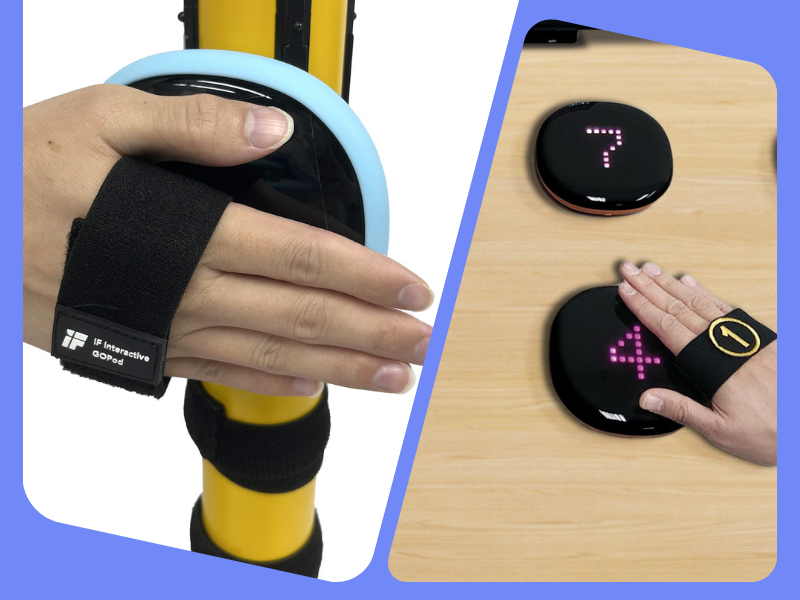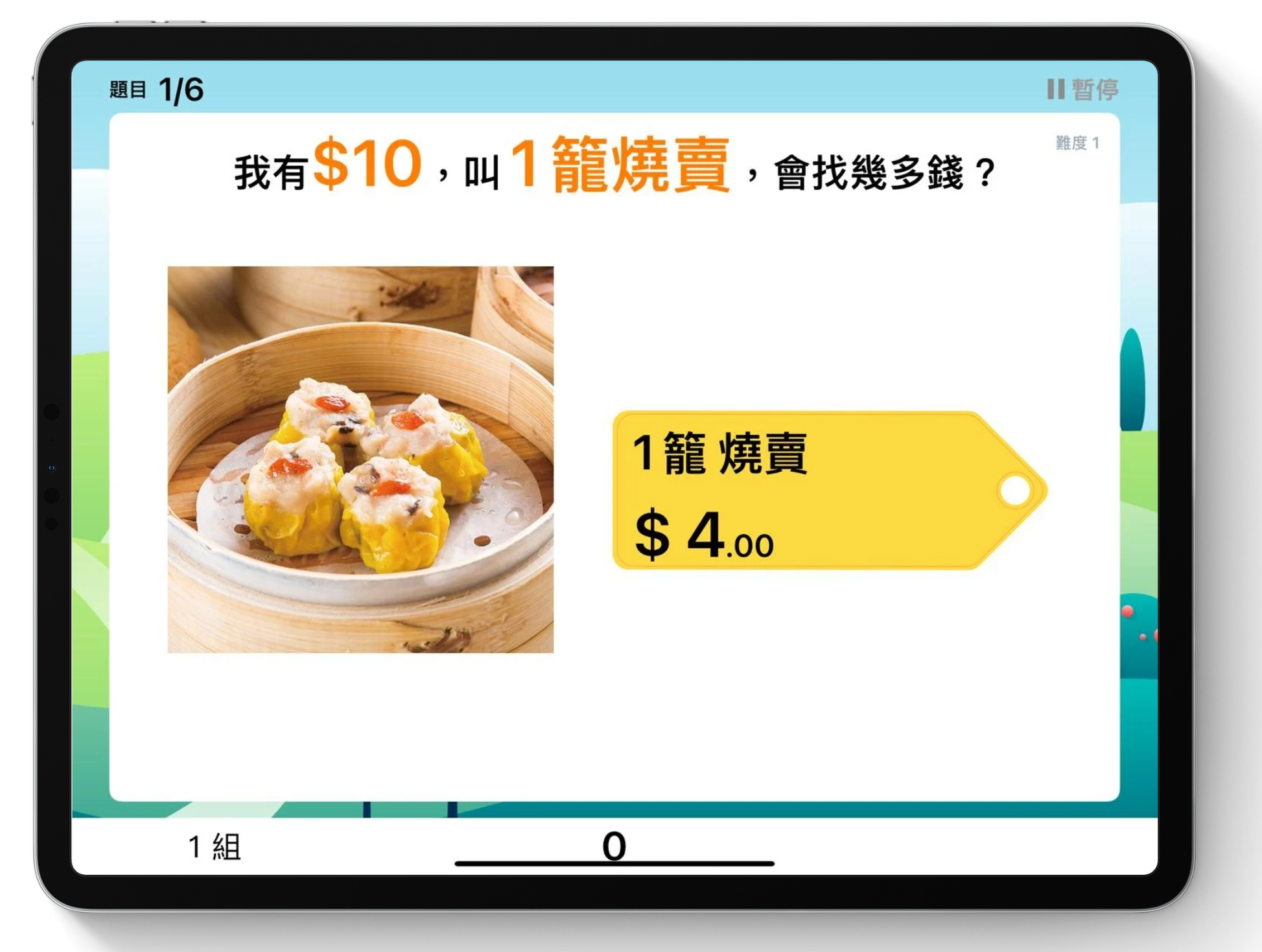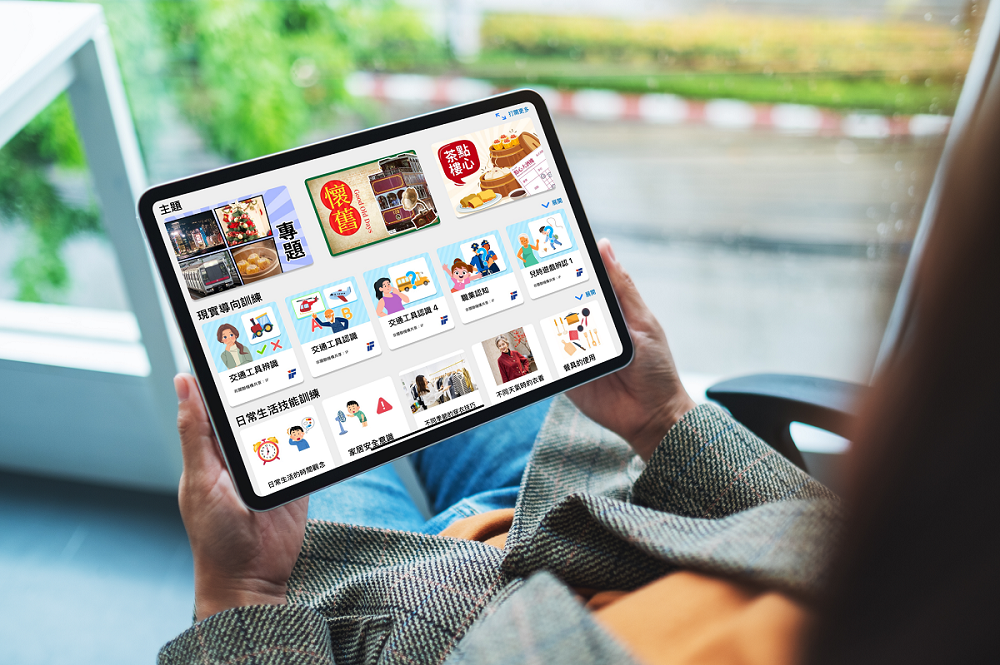
.png)
In recent years, the number of older adults with dementia has continued to rise, coupled with an increasing proportion of frail elders. This poses significant challenges for occupational therapy work in elderly homes. Ms. Lee, an occupational therapist at the Hong Kong Lutheran Social Service Mrs Leung Kwai Yee Lutheran Home, understands that beyond physical decline, seniors also have substantial psychological and emotional needs. She shared:
“Many people feel that moving into a care home means losing freedom, but what we hope to provide is a sense of belonging through meaningful activities.”
Medication can be expensive and not every older adult can afford it. Therapists therefore look to gerontechnology to make cognitive training activities more engaging. Ms. Lee explained:
“We need tools that are portable, easy to operate, and ideally aligned with local culture. That’s what really attracts seniors.”
GOPod happens to address all of these needs.
Unlike traditional tools, GOPod is suitable even for frail elders and can support multiplayer interaction. In daily activities, Ms. Lee often uses GOPod for warm-up reaction training, followed by group competitions, such as dividing into male and female teams to answer questions using the sensors.
She noted:
“I observed residents becoming more interactive and proactive, and the atmosphere was especially lively. I usually provide only two answer choices so they are more likely to succeed, which builds confidence and encourages participation.”
For frailer residents, a single-player mode is used to train attention span.
Beyond cognitive and attention training, GOPod’s interactivity has a positive effect on daily life in the home. Because many residents can participate together, activities naturally generate more conversations and laughter, helping residents build friendships, feel motivated, and integrate into the community faster, reducing feelings of isolation.
Many older adults initially worry about using new technology, thinking: “I didn’t go to school, so I won’t know how to handle it.” But Ms. Lee found that GOPod’s design is intuitive and simple. Residents often learn quickly, and the positive experience reduces resistance to technology, while boosting confidence and willingness to join future activities.
%20-%20%E8%A4%87%E8%A3%BD.jpg)
Therapists often need customized content for training. GOPod’s user-friendly AI Content Editor is very helpful for this. Ms. Lee added:
“The IF Interactive team also checks in with us regularly, listens to our feedback, and fine-tunes features accordingly.”

GOPod can be flexibly placed on tables, walls, or pillars, and supports 2, 4, 6, or 8 sensors, making training sessions more versatile and no longer limited to one format.
Some homes use tablet-based cognitive games, but for frail seniors this can be difficult — for example, holding up a finger to tap a screen for long periods, or requiring fine motor control, which may be challenging. With GOPod’s wearable sensor bands, residents simply tap lightly to trigger a response, without straining their fingers or wrists.

In one activity, Ms. Lee used IF Interactive’s “Yum Cha Dim Sum” counting game, where residents calculated the price of siu mai dumplings.
She recalled with a smile:
“Some of the male residents are usually quiet and passive, but this time they became animated, discussing prices enthusiastically and even joking with each other.”

Different themes appeal to different residents: men showed strong interest in number games, while women became engaged when talking about the 24 Solar Terms and traditional herbal soups, eagerly sharing their own health tips. These activities not only trained cognition, but also built emotional connections among residents.

Ms. Lee believes GOPod’s flexibility makes it highly practical and portable:
“Its design is handy. Besides daily in-house cognitive training, we bring it to open days and public activities. One charge lasts a whole day, so it’s perfect for outreach sessions too.”
She also suggests homes make good use of GOPod’s AI Editor to create personalized content based on residents’ interests — such as food, seasonal traditions, or everyday knowledge. This ensures activities are relatable, diverse, and continuously engaging.
From dumpling counting games to herbal soup discussions, Ms. Lee has witnessed residents transform — from passive to active, from silent to smiling.
This is the true value of GOPod: more than just a cognitive training tool, it is a bridge that brings vitality and warmth to care home life.
At IF Interactive, we believe that every real story can inspire the industry. The experience at the ELCHK Mrs. Leung Kui Yee Lutheran Home for the Elderly shows how gerontechnology can empower daily care home routines, enhance resident participation and interaction, and ultimately help older adults live with greater energy and joy.

